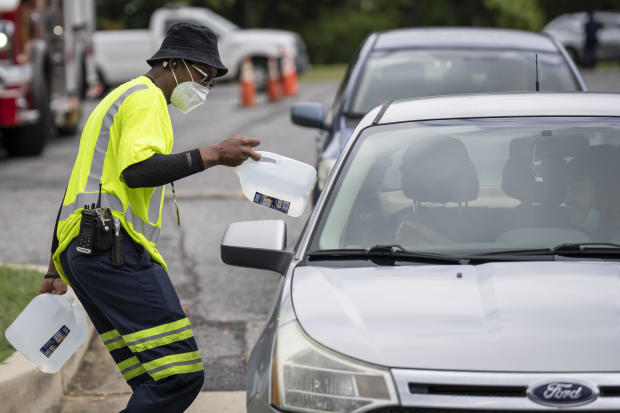Baltimore residents urged to boil water after E. coli bacteria found in samples
Baltimore officials are encouraging residents to boil water used for drinking or cooking after E. coli bacteria was detected in some samples of the water supply in parts of West Baltimore. The city Department of Public Works issued a series of tweets Monday informing residents that the bacteria had been found in portions of the city’s ninth council district, which includes the Sandtown-Winchester and Harlem Park neighborhoods.
“As an extra precaution, DPW will be sampling and surveying the communities in the area of the facilities where the original sampling was performed,” according to a statement posted on the department’s official Twitter account.
Outside the city, residents in parts of Baltimore County and Howard County were also urged to boil their water.
DPW officials said Wednesday that they were still investigating the source of the contamination, but they had ruled out that it stemmed from wastewater treatment or water treatment plants.
Officials said that between Monday evening and Tuesday, water samples were taken at 25 locations and that only one — a police station on Mount Street — came back positive for E. coli.
Officials said they are also investigating two cases of gastrointestinal illness within the boil water advisory zone, but it has not been confirmed that the cases were caused by E. coli.
Over 100,000 people are affected, CBS News Baltimore investigative reporter Mike Hellgren reports. State environmental officials are searching for the source of the contamination, Hellgren reports.
The bacteria is often spread during contact with feces.
Crews from the public works department have been distributing water in the area with a limit of 3 gallons per household.
Drew Angerer/Getty Images
E. coli contamination can cause intestinal distress with symptoms that include stomach cramps, diarrhea and vomiting.
Illness caused by the bacteria usually is mild and clears up on its own, but in rare cases, a potentially life-threatening complication can result about a week following the initial infection, according to the U.S. Centers for Disease Control and Prevention.
For all the latest Health News Click Here
For the latest news and updates, follow us on Google News.


